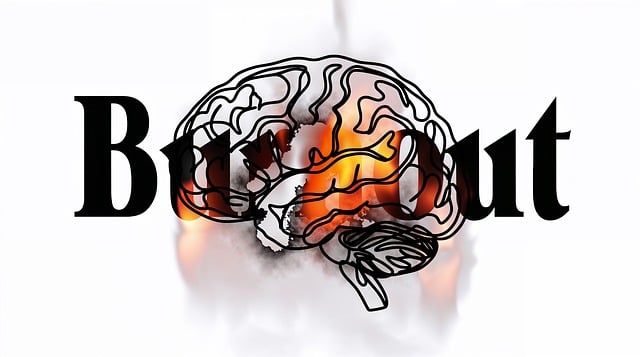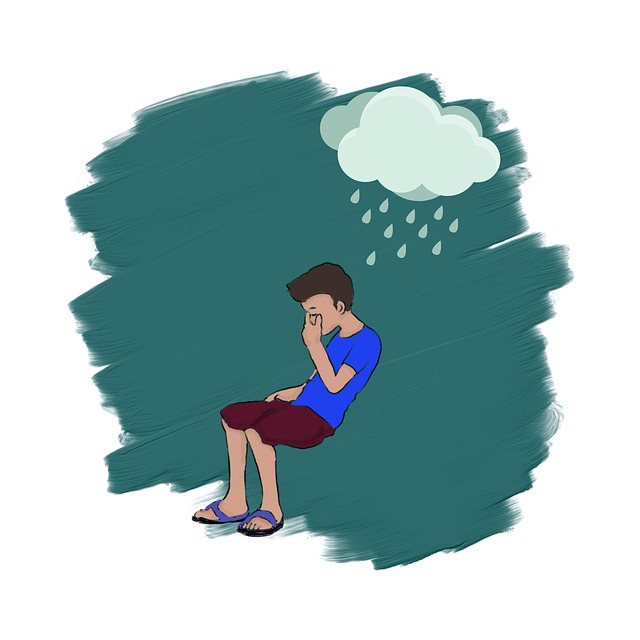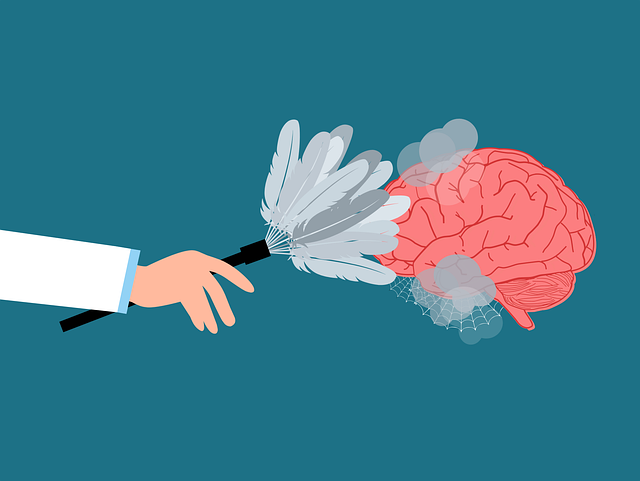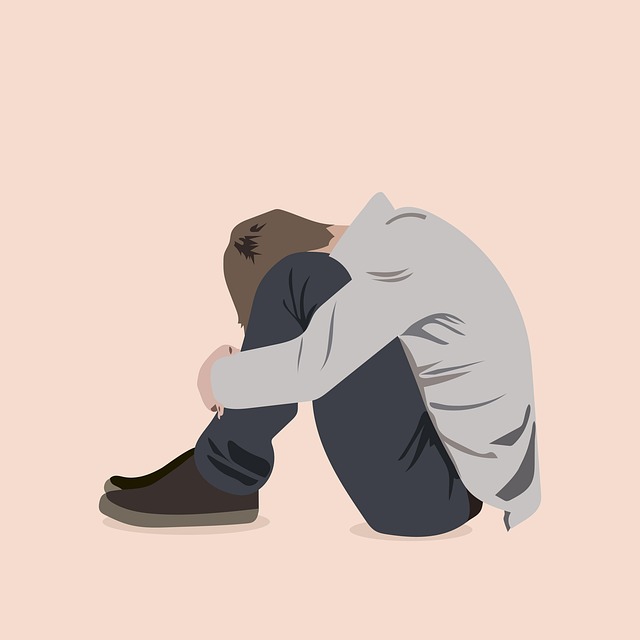Anxiety disorders result from a complex interplay of genetic, neurological, environmental, and life experience factors, with symptoms ranging from physical reactions to persistent worry. Boulder Suicide Prevention Therapy focuses on early intervention through mental health awareness, using Cognitive Behavioral Therapy (CBT) to address negative thought patterns and behaviors. They offer tailored workshops and sessions for stress management, emotion regulation, and challenging negative beliefs. Mindfulness meditation, deep breathing exercises, and progressive muscle relaxation are core techniques, helping individuals stay present and reduce the impact of anxious thoughts. Building resilience through lifestyle changes, balanced diets, regular exercise, and strong support systems is emphasized, with Boulder Suicide Prevention Therapy providing cultural sensitivity and tailored strategies for managing anxiety symptoms effectively.
Anxiety is a common struggle, but managing it effectively can lead to a healthier, happier life. This comprehensive guide explores powerful techniques to combat anxiety, from understanding its symptoms and causes to evidence-based therapies like Cognitive Behavioral Therapy (CBT). Discover mindfulness practices, relaxation techniques, and lifestyle changes that promote resilience. Learn how building strong support systems can enhance your journey towards overcoming anxiety—a path often illuminated by Boulder Suicide Prevention Therapy and similar interventions.
- Understanding Anxiety: Symptoms and Causes
- Cognitive Behavioral Therapy (CBT): A Powerful Tool
- Mindfulness and Relaxation Techniques for Calmness
- Building Resilience: Lifestyle Changes and Support Systems
Understanding Anxiety: Symptoms and Causes

Anxiety is a natural response to stressful situations, but when it becomes overwhelming and persistent, it can significantly impact daily life. Recognizing the symptoms is crucial for effective management. Individuals may experience physical manifestations such as a racing heart, rapid breathing, sweating, or trembling. These physiological reactions often signal an individual’s ‘fight or flight’ response to perceived threats, even if the trigger is non-existent in modern contexts. Mental and emotional signs include persistent worry, fear, restlessness, difficulty concentrating, irritability, and insomnia. Understanding these symptoms is a vital step towards managing anxiety effectively.
Several factors contribute to the development of anxiety disorders, including genetic predisposition, brain chemistry, environmental influences, and life experiences. Traumatic events, chronic stress, or even certain medical conditions can trigger anxiety. In Boulder Suicide Prevention Therapy, professionals focus on identifying these causes to develop tailored strategies for stress management and fostering positive thinking. Mental health awareness plays a significant role in early intervention, ensuring individuals receive the necessary support before anxiety becomes debilitating.
Cognitive Behavioral Therapy (CBT): A Powerful Tool

Cognitive Behavioral Therapy (CBT) is a highly effective anxiety management technique that has gained significant recognition in the field of mental health. This therapeutic approach focuses on identifying and changing negative thought patterns and behaviors, offering individuals a powerful tool to combat anxiety disorders. CBT helps individuals recognize that their thoughts, feelings, and actions are interconnected and that by modifying their cognitive processes, they can significantly impact their emotional well-being.
In Boulder, the Suicide Prevention Therapy center often employs CBT as part of its comprehensive mental health services. This therapy is tailored to each individual’s unique needs, helping them develop coping strategies for stress management. By participating in structured workshops and sessions, individuals learn to regulate their emotions more effectively, which can be a game-changer in preventing depression and managing anxiety symptoms. Through CBT, folks gain insights into their thought processes, enabling them to challenge negative or distorted beliefs and replace them with healthier, more balanced perspectives.
Mindfulness and Relaxation Techniques for Calmness

In the quest for managing anxiety, mindfulness and relaxation techniques stand as powerful allies. These practices, often explored through Boulder Suicide Prevention Therapy, offer individuals a path to calmness and emotional resilience. Mindfulness meditation, a cornerstone of this approach, involves focusing one’s awareness on the present moment, thereby reducing the grip of anxious thoughts that may drift into the future or linger in the past. By cultivating mindfulness, individuals can learn to observe their feelings without judgment, fostering a sense of detachment from anxiety-inducing scenarios.
Complementing mindfulness meditation are various relaxation techniques such as deep breathing exercises and progressive muscle relaxation. These practices help to regulate the body’s physiological response to stress and anxiety. For mental health professionals, integrating these techniques into their risk management planning can significantly enhance client outcomes. Conflict resolution techniques, for instance, can be adapted to address inter-personal anxieties, transforming challenging situations into opportunities for growth and understanding.
Building Resilience: Lifestyle Changes and Support Systems

Building resilience is a key component in managing and overcoming anxiety. Lifestyle changes play a significant role in this process. Engaging in regular physical activity, maintaining a balanced diet, and prioritizing adequate sleep can significantly impact one’s mental health. These simple yet powerful habits help regulate mood, reduce stress, and promote overall well-being, making it easier to manage anxiety symptoms.
Support systems are equally vital. Connecting with like-minded individuals, whether through support groups or personal relationships, offers a sense of belonging and understanding. Boulder Suicide Prevention Therapy emphasizes the importance of cultural sensitivity in mental healthcare practice, ensuring that these support networks cater to an individual’s unique background and experiences. Practices such as mindfulness meditation have gained popularity for their effectiveness in anxiety relief. By integrating these techniques into daily routines, individuals can build resilience, enhance coping mechanisms, and lead more fulfilling lives despite the challenges that anxiety presents.
Anxiety is a common challenge, but managing it effectively is achievable with the right tools. From understanding symptoms and causes to exploring evidence-based therapies like Cognitive Behavioral Therapy (CBT), adopting mindfulness practices, and making positive lifestyle changes, individuals can gain control over their anxiety. Building resilience through strong support systems has also been shown to be effective. By combining these strategies, one can reduce anxiety symptoms and improve overall well-being, even considering severe cases that might require professional help from Boulder Suicide Prevention Therapy services.












